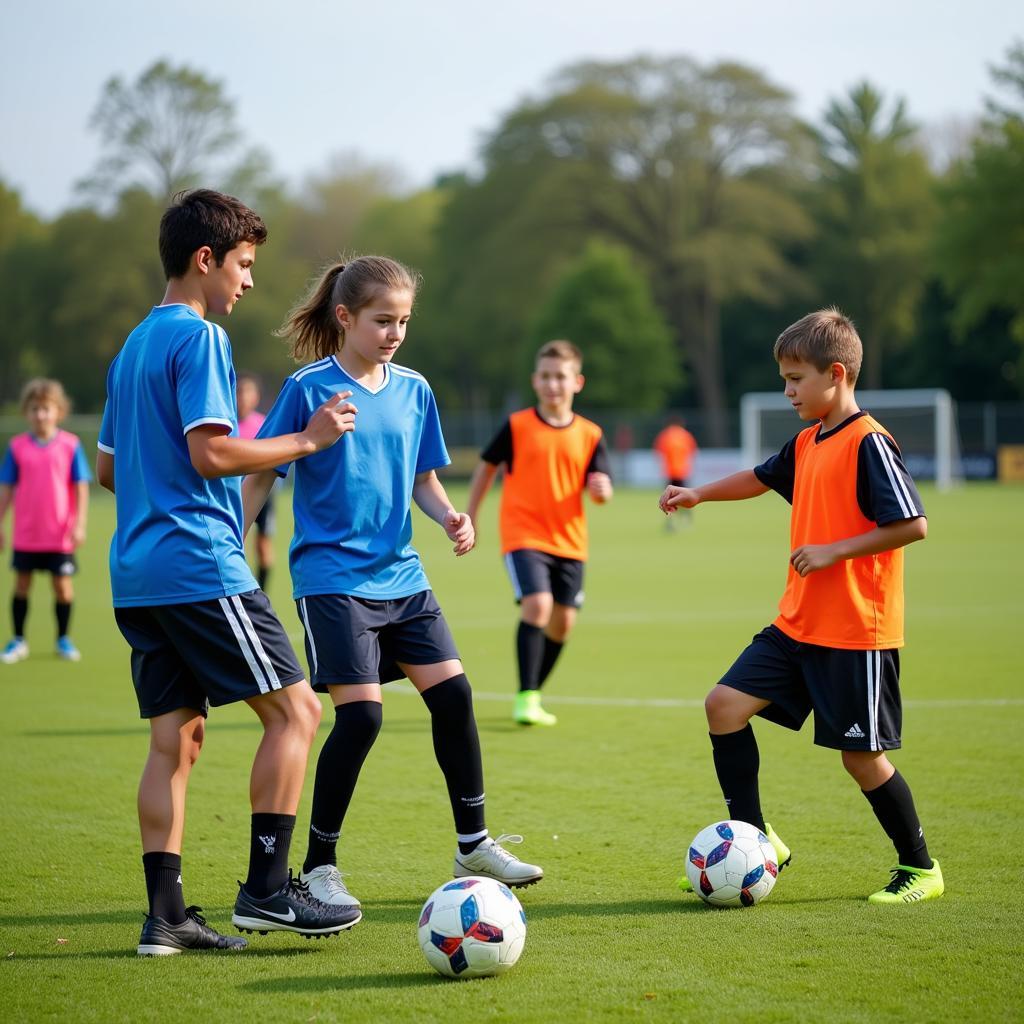Developing a Winning Youth Soccer Team
November 3, 2024Developing a winning youth soccer team requires more than just talented players. It demands a holistic approach encompassing technical skills, tactical awareness, physical conditioning, and mental fortitude. This article will explore the key elements involved in building a successful youth soccer program and nurturing young athletes to reach their full potential.
Building a Solid Foundation: Technical Skills and Tactical Awareness
Technical skills are the building blocks of any successful soccer player. Dribbling, passing, shooting, and ball control are fundamental elements that must be honed from a young age. Consistent practice and drills focusing on these core skills will enable young players to manipulate the ball effectively and execute precise movements on the field. Tactical awareness is equally crucial. Understanding formations, positioning, and movement off the ball can significantly impact a team’s performance. Coaches must instill a strong understanding of the game’s strategic elements, enabling players to make intelligent decisions on the field.
 Youth Soccer Players Practicing Dribbling and Passing Drills
Youth Soccer Players Practicing Dribbling and Passing Drills
Regular training sessions should incorporate drills that combine technical skills with tactical elements. For example, small-sided games can help players develop their decision-making skills in a dynamic environment. Coaches should also analyze game footage and provide personalized feedback to each player, highlighting areas for improvement.
Physical Conditioning and Mental Fortitude
Physical conditioning plays a vital role in youth soccer development. Speed, agility, strength, and endurance are essential attributes that enable players to compete at a high level. Implementing age-appropriate training programs that focus on these areas will help players develop their physical capabilities while minimizing the risk of injury. Mental fortitude is another critical aspect of a winning team. Players need to develop resilience, focus, and a positive mindset to overcome challenges and perform under pressure. Coaches can incorporate mental training techniques, such as visualization and positive self-talk, into their training regimes.
How can we help young players develop mental toughness? By creating a supportive and encouraging environment where players feel comfortable taking risks and learning from their mistakes. Celebrating successes and providing constructive feedback after setbacks can build confidence and foster a growth mindset.
Nurturing a Winning Team Culture
Creating a positive and supportive team culture is essential for youth soccer development. Fostering teamwork, communication, and respect among players will create a cohesive unit that works together towards a common goal. Coaches should emphasize the importance of sportsmanship and fair play, instilling values that extend beyond the soccer field. Open communication between players, coaches, and parents is crucial for addressing concerns and ensuring everyone is on the same page.
Conclusion
Developing a winning youth soccer team requires a multifaceted approach that addresses technical skills, tactical awareness, physical conditioning, and mental fortitude. By focusing on these key elements and fostering a positive team culture, coaches can nurture young athletes to reach their full potential and achieve success on and off the field. Remember that developing well-rounded individuals is just as important as developing skilled soccer players.
FAQ
- What age should children start playing organized soccer? Many programs start around age 5 or 6.
- How often should youth soccer players train? Two to three times a week is a good starting point.
- What are the benefits of playing youth soccer? Besides physical fitness, it teaches teamwork, discipline, and social skills.
- How can I find a good youth soccer program for my child? Ask other parents, check local community centers, and research online.
- What equipment does my child need to play soccer? Cleats, shin guards, a soccer ball, and appropriate athletic clothing are essential.
- How can I support my child’s development as a soccer player? Be encouraging, attend their games, and help them practice.
- What role do parents play in youth soccer development? Positive support and encouragement are crucial.
For further assistance, please contact us: Phone: 0396443476, Email: [email protected], or visit us at 23 Tháng 3, Đắk Nia, Gia Nghĩa, Đắk Nông, Việt Nam. We have a 24/7 customer service team.